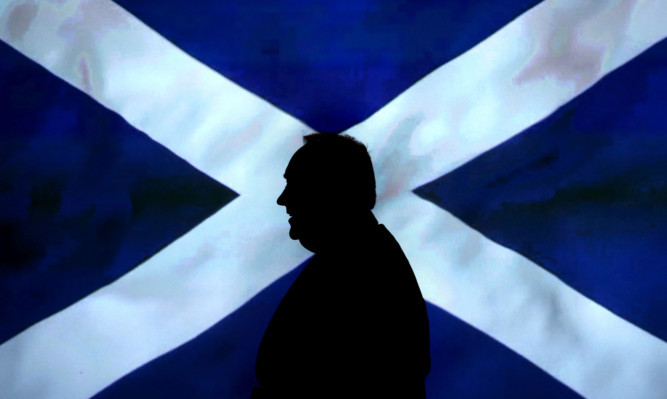Support for Scotland remaining in the United Kingdom is the highest it has been for almost two years, according to a new poll.
A new Ipsos MORI survey for The Times found that 59% of people who are certain to vote in next year’s referendum are opposed to independence – up from 55% in February and the highest level the polling firm has found since August 2011.
A total of 31% of the 1,001 adults who were questioned said they would be voting Yes for independence, compared to 34% three months ago.
The results suggest that supporters of Scotland remaining in the UK outnumber those who favour independence by almost two to one.
Among those who are certain to vote, just 10% of those polled were undecided.
There are now fewer than 500 days to go until Scots decide the country’s future in a historic ballot.
Those who took part in the survey were asked “Should Scotland be an independent country?” – the same question that will be put to people in the referendum, to be held on September 18 next year.
Among those who are certain to vote and who have definitely decided how they will cast their ballot, 67% said they would be voting No to independence, with 33% saying they would vote in favour of Scotland leaving the UK.
Ipsos MORI spokesman Christopher McLean said: “Following recent debates over the currency and pensions in an independent Scotland, our latest poll shows that support for Scotland remaining in the Union is growing.
“Although there are just under 500 days to go until the referendum, most Scots who plan to vote say that they have made up their minds, with a clear majority opting to remain part of the UK.
“This suggests that the Yes Scotland Campaign will have to convince the vast majority of the remaining, floating voters to support independence if it is to stand any chance of achieving independence in September 2014.”
A spokesman for the pro-independence Yes Scotland campaign said they would be “working hard over the next 16 months to earn the trust and support of a clear majority of Scots on the basis that Scotland’s future should be in Scotland’s hands”.
He added: “It is clear that when it comes to economic and social policy, the Westminster system is not working for Scottish families. There is a better way and our key message is that Scotland’s got what it takes to be a fairer and more successful country with independence.
“We are confident that as people focus in on the choice they will be making in September 2014 – between a Yes future and a No future – that more and more Scots will join us in saying Yes.”
